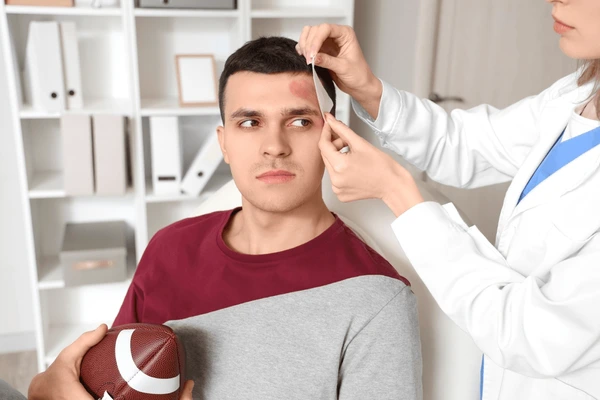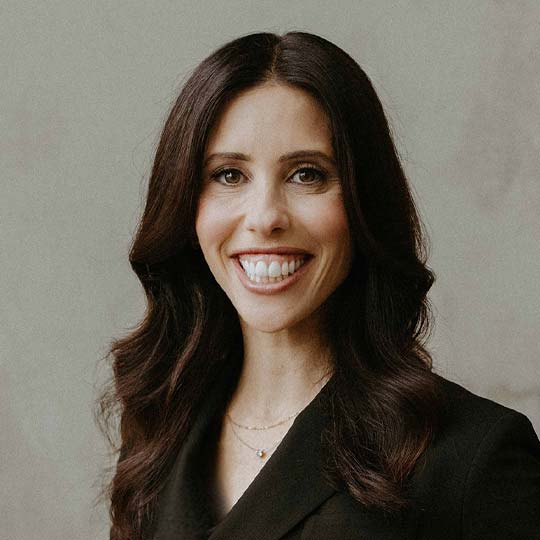Sep 05, 2025 in News Legal News
Legal News: Sports-Related Brain Injuries Ontario: Risks, Recovery, Law

The cheers stop. A player is on the ice, holding their head. In Ontario, where rinks, fields, and courts are part of daily life, brain injuries can happen in an instant. The impact doesn’t just stop the game — it can change an athlete’s health, schooling, and legal rights in seconds.
If you or your child suffers a suspected head injury during a game, practice, or school activity, get medical attention right away. Then talk to an experienced injury lawyer in Toronto to protect your deadlines, preserve evidence, and make early decisions that safeguard your future.
These moments on the ice, field, or court remind us how quickly the game can change. To understand why immediate action matters, it helps to know what a sports-related brain injury is, how it happens, and what signs to watch for.
What Is a Sports-Related Brain Injury in Ontario?
A sports-related brain injury can range from a mild concussion to a moderate or severe traumatic brain injury. It may result from a direct blow to the head, a whiplash-type motion that shakes the brain inside the skull, a fall on ice or turf, or an impact with equipment.
A helmet can protect the skull and face, but even a hard impact can still cause the brain to shift inside the skull. That movement can injure the brain even if there’s no sign of damage on the outside.
If symptoms persist or worsen after rest, seek medical care promptly. Consider guidance from a dedicated brain injury lawyer who understands both recovery planning and the legal process.
How These Injuries Happen in Everyday Sport
Head injuries occur in both contact and non-contact sports.
Contact sports:
- Hockey: body checks, collisions near the boards.
- Soccer: head-to-head contact, elbows in aerial challenges, and falls after a push.
- Basketball: screens, rebounds, fast-break contact.
Non-contact sports:
- Cycling: crashes during training rides, even with proper gear and lights.Figure skating, gymnastics, and running: falls on hard surfaces.
Facility hazards:
A loose board, torn turf, broken step, or icy walkway can raise the risk. A slip-and-fall accident lawyer can advise on occupiers’ liability and notice requirements.
Road use:
Training on public streets comes with risks. A driver who cuts you off or opens a door into your path can cause a crash in seconds. When it happens, a car accident lawyer can step in to secure treatment funding, file your benefit claim, and speak with the insurer for you.
Symptoms to Watch for and Red Flags
A concussion can affect people in different ways, and the symptoms may shift from one day to the next. Many experience headaches, dizziness, nausea, sensitivity to light or sound, neck pain, difficulty focusing, or short-term memory problems. Some also notice feeling more irritable, anxious, or fatigued than normal.
Red flags such as repeated vomiting, worsening headache, loss of consciousness, seizures, slurred speech, numbness, weakness, or unusual behaviour require urgent medical care.
If you suspect a missed diagnosis or delay made the harm worse, a medical malpractice lawyer can review the care provided and explain your options in plain language.
If you or your child is showing concussion symptoms right now, seek medical attention immediately and speak to a lawyer early to protect your rights.
Return-To-Learn and Return-To-Sport in Ontario
Ontario’s concussion framework requires a cautious, stepwise process. The first step is removal from play when a concussion is suspected. That protects the brain and reduces the risk of a second injury before the first has healed.
After an initial period of relative rest, light activity begins. If symptoms do not worsen, the athlete progresses to sport-specific exercise that avoids the risk of head contact. Non-contact practice follows. Full contact returns only after medical clearance.
Schools use similar steps for return-to-learn, beginning with reduced screen time or homework, then a gradual increase in workload and attendance.
If symptoms persist and work becomes difficult, or if an insurer denies benefits, a long-term disability lawyer in Toronto can explain your coverage, deadlines, and appeal routes.
Real-World Example (Ontario, 2020): Casterton v. MacIsaac
During a non-contact recreational hockey game in Ottawa, a player delivered a blind-side hit behind the net that left the opponent unconscious and caused a concussion and dental injuries. In Casterton v. MacIsaac (2020 ONSC 190), the Ontario Superior Court held that while players accept the ordinary risks of hockey, they do not consent to conduct outside the bounds of fair play in a non-contact league, and found the defendant liable.
The Court emphasized that consent in sport has limits: participants accept routine contact and accidental collisions, but not reckless or retaliatory checks that are inconsistent with the game being played. As discussed in a Law Times analysis, the decision is frequently cited to show that civil liability can arise where conduct exceeds what players reasonably agree to when they step on the ice.
The Court awarded about $702,551 in damages—$100,000 in general damages, $199,512 for past income loss, and $440,039 for future income loss.
Your Legal Rights After a Sports Brain Injury
Liability depends on whether someone failed to meet a reasonable standard of care and whether that failure caused the harm. The key question is which risks are part of the sport and which arose from negligence.
Examples include coaches who ignore concussion signs, run dangerous drills for an athlete’s age or size, mismatch players, provide poor supervision, or leave facility hazards uncorrected.
Waivers matter, but they do not automatically end a case. Courts review the wording, how the presenter delivered it, and whether negligence, rather than an accepted sport risk, caused the harm.
If neck or neurological symptoms affect long-term function, a spinal cord injury lawyer can work with the brain injury team to document all impairments fully.
Evidence That Strengthens Your Claim
Strong cases start with organised evidence:
- Medical: includes assessments, symptom tracking, and records that show how the injury has affected school or work.
- Visual/Physical: covers photos, videos, and any preserved equipment.
- Witness: refers to statements from teammates, officials, parents, and trainers, along with a symptom diary.
- Financial: pay stubs, sick notes, receipts for therapy or travel, school letters.
- Work impact: documents showing job limits, along with records of work you had to turn down.
Damages and Insurance in Ontario Sport Cases
Damages:
- Pain and suffering encompass both the physical effects of the injury and the accompanying stress and hardship.
- Lost income refers to wages missed when you worked fewer hours, skipped shifts, or turned down jobs.
- Future impact includes losses from reduced performance or missed career opportunities over time.
- Medical and rehabilitation costs include expenses for physiotherapy, neuropsychology, occupational therapy, counselling, vision therapy, academic support, and return-to-work programs.
- Out-of-pocket expenses are travel and other costs you paid yourself, backed by receipts.
Insurance:
- Community clubs may have sports accident coverage.
- Facilities may hold liability policies.
- School boards follow strict notice rules (some deadlines can be as short as 10 days).
- If a vehicle is involved, Ontario’s accident benefits apply regardless of fault, with a separate lawsuit possible against the at-fault driver. Your legal team manages deadlines, forms, and insurer communication.
What to Do After a Suspected Concussion
- Stop playing and get assessed to protect the brain.
- Follow written guidance and progress only when symptoms stay stable.
- Document the incident with date, time, location, and sequence.
- Save photos or videos from parents or team staff.
- Collect witness contacts (teammates, coaches, officials, caregivers).
- Preserve equipment until advised otherwise.
- Track symptoms and limits (screen time, reading, mood, sleep).
- Keep work or school notes (forms, accommodations, email threads).
- Seek early legal advice, as municipality and school board deadlines can be short. If you prefer to meet locally, a personal injury lawyer in Toronto can arrange a convenient consultation.
How Neinstein Helps Athletes and Families
We help athletes and families recover by:
- Listening to your story helps us set clear goals.
- Guiding you through medical, insurance, and legal steps.
- Securing evidence early and preserving facility or equipment records.
- Connecting you with concussion care specialists.
- Preparing strong reports for negotiations or court.
- Explaining options in plain language.
- Coordinating with insurers to keep treatment on track.
- Involving the right experts at the right time for complex injuries.
A head injury affects more than the game. It can disrupt school, work, and family life. Our focus is on your recovery, your rights, and a resolution that supports your future.
Ready to talk? If you or a family member suffered a sports-related brain injury in Ontario, contact Neinstein Personal Injury Lawyers for a confidential consultation. We will listen, explain your options, and help you move forward.
FAQs
What should I do right after a suspected sports-related concussion?
Stop play immediately, get assessed by a medical professional, and follow a stepwise return-to-sport plan. If questions arise about liability or next steps, speak with our Brain Injury Lawyers.
Do I need a CT or MRI to prove a concussion?
Not usually. A concussion is often a functional injury that doesn’t show on standard imaging; diagnosis is primarily clinical. If you’re unsure what records you’ll need for a claim, our Brain Injury Lawyers can advise on evidence.
Can I return to play the same day if symptoms fade?
No—same-day return is not advised. Athletes should follow a graduated return-to-sport protocol and obtain medical clearance before full contact or competition. If a head injury impacts school or work, start a documentation log and consider a free case review.
What evidence helps a sports-related brain injury claim?
Medical notes (ER/clinic), symptom logs, incident reports, witness names, photos/video, and equipment details (helmet model, fit/age) are useful. If you’re not sure where to begin, here’s what to expect when you speak with our team.
Do you work with athletes outside Toronto?
Yes—we serve clients across Ontario. View our Service Areas.
Sports-related brain injury? Get clear, practical advice.
- Free, no-obligation case review
- Ontario-wide representation (virtual or in-office)
- Fast response and a plan for next steps
Areas we proudly serve
Peterborough | Whitby | Sarnia | Georgetown | Orangeville | Woodstock | Cornwall | Lakefield | Bancroft | North Bay | Sault Ste. Marie | Thunder Bay | [See full Service Areas] ???? Start your free case review • Phone: [1-866-767-6836]Category Selector
Select a category relevant to you.
- Social Host Liability
- Tort
- Spinal Injury
- Road Safety
- Slip and Fall Claims
- Snowmobile Accident
- Product Liability
- Rail Accidents
- Recalls
- News
- Nursing Home Negligence
- Personal Injury
- Physical and Psychological Injuries
- Negligent Supervision
- Neinstein in the Community
- Medical Malpractice
- Motorcycle Accidents
- Long Term Disability
- Chronic Pain
- COVID-19
- Dog Bites Claims
- Events
- General
- Homeowner Liability
- JUUL & Vaping
- JUUL Vaping Lawsuit
- Lawyer Profile
- Legal News
- Legal Representation
- Liability
- Long-term Care
- Blogs
- Boating Accident
- Brain Injury
- Car Accident
- Accident Benefits Claims
- Auto Insurance
- Bicycle Accidents
- Water Accidents
- Wrongful Death
- In the Community
Area of Expertise
Brain injury
Injury to the brain can occur in a variety of ways and is often devastating. We understand how difficult it is to navigate the consequences of an acquired brain injury. Whether you or your loved one has suffered a stroke, a surgical complication, or any other medical error resulting in brain injury, our team has the knowledge and experience to help victims secure compensation for their future. Neinstein works closely with the Ontario Brain Injury Association and other experts in the field to support research and programming.
More Posts Legal SupportBook A Free Consultation
We will not charge you unless your case is successful.
At Neinstein we have been advocating for injured victims for over 55 years. Our committed and compassionate team will do everything necessary to help you and your family find solutions to the new challenges that arise from serious injuries.
Our team will ensure you access the proper healthcare support to aid in your recovery. While you focus on your rehabilitation, we will thoroughly investigate your case and guide you through the litigation process so we can achieve the maximum compensation that you deserve.

